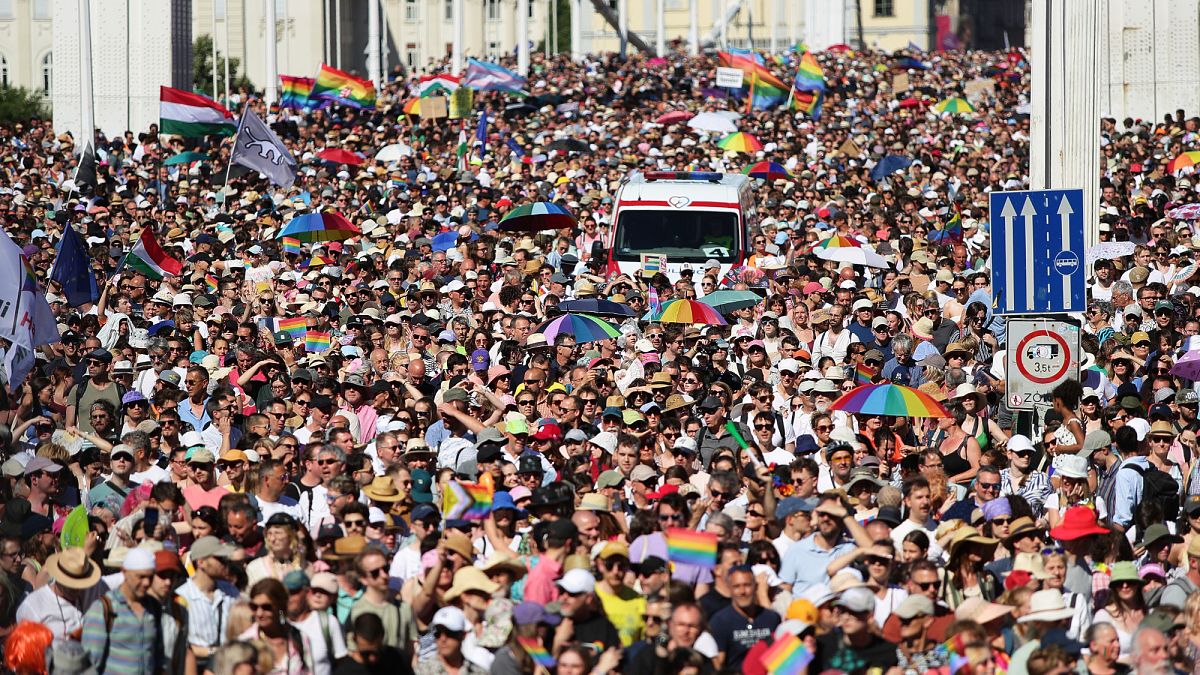
"Prime Minister Viktor Orbán criticized the Budapest Pride march as "repulsive and shameful," blaming "puppet politicians" for orchestrating the turnout."
"Despite government attempts to ban the march, over 100,000 participants rallied in Budapest, showcasing their solidarity with the LGBT community against the ruling party."
"Analyst Bulcsú Hunyadi noted that while Fidesz sought to suppress Pride, the large turnout actually highlighted public dissent against the government's stance on the event."
"Pro-government media portrayed the march as a success for Orbán, claiming it condensed opposition political forces, while dissent against Fidesz's policies may be growing."
The Budapest Pride march attracted over 100,000 participants, despite a ban from the Hungarian government, which was labeled as a failure by Prime Minister Viktor Orbán. He called the event "repulsive and shameful," stating it was manipulated by foreign influences and detached from the will of the Hungarian people. However, political analysts suggest that the overwhelming attendance indicates growing opposition to the ruling Fidesz party and signifies a backlash against their attempts to suppress public expression, particularly regarding LGBT rights. Pro-government media tried to spin the event as advantageous to Orbán, but dissent appears to be rising.
Read at euronews
Unable to calculate read time
Collection
[
|
...
]